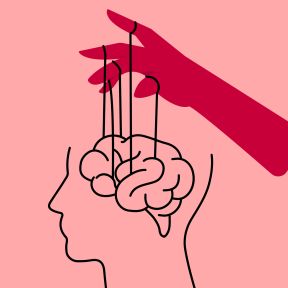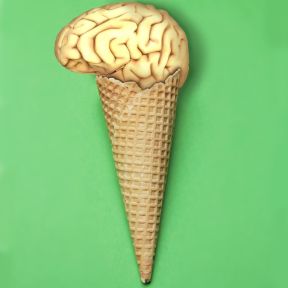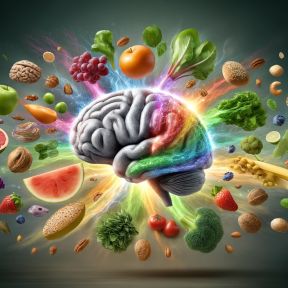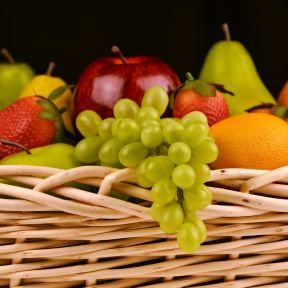Nutrients fuel the body and brain's energy needs. This fuel allows humans to function and flourish—to breathe, to speak, to play, to learn, and to reproduce.
Humans evolved under very different circumstances than today; sustenance was often in short supply, and it was advantageous to snatch up sugars and fats that could provide a boost of energy.
These evolutionary roots are at odds with the modern world, in which food is, in many places, overabundant. Cravings can be difficult to control. Rules can be difficult to maintain.
Food also carries cultural, social, and economic weight. Holidays and gatherings, for example, highlight food as the main event, which can change the meaning of a meal.
Food can elicit an array of psychological challenges, often related to weight management, eating disorders, and body image. Yet there are numerous ways to address these challenges and cultivate a healthy lifestyle.
Contents

Many people struggle with diet and weight management at times. But this relationship isn’t set in stone—there are always ways to change and improve it.
Changing that relationship and cultivating a healthy lifestyle looks different for everyone. Some may reframe the idea of a diet entirely and identify different ways to adopt sustainable change. Others may need to unlearn old beliefs and listen more closely to their body. Still others may develop skills to identify and cope with difficult emotions that don’t involve food.
Unfortunately, diets rarely lead to permanent weight loss. An overview of commercial programs found that participants typically regained the weight they lost relatively quickly. Even in studies of medically supervised low-calorie diets, patients who succeeded in losing 15 to 25 percent of their body weight tended to be the exception, and many regained that weight fairly quickly.
Despite these trends, diets and commercial weight loss programs are still pervasive. Reasons for this include that the body quickly adapts to changes in caloric intake, weight loss programs tend to exaggerate their claims, and the media often depicts thinness as an essential part of attractiveness.
Psychologists previously believed that willpower was finite, that it wore thin the more people resisted a tempting treat, for example. But new, robust research has called that concept into question, finding little evidence that ego depletion exists.
Diets often don’t lead to sustained weight loss—occasionally they even lead to weight gain. One reason why is that the restrictive nature of diets can lead people to fixate on the items they can’t have. Another is that diets are often conceived as temporary rather than enduring. Yet another is that maintenance is less motivating than weight loss. Lastly, diets can lower metabolism, making it challenging to continue losing weight.
Lasting weight loss involves reframing the idea of a diet. People should cultivate a sustainable, long-term plan for nutrition and exercise rather than adopt a short-term diet. This also involves accepting the need for change, building healthy habits through small, incremental changes, and shifting focus away from items given up to benefits of the new lifestyle.
If you’re struggling to stick to certain food choices, try developing proactive strategies rather than attempting to resist temptation in the moment. A few ideas include avoiding a situation in which you’ll confront temptation, reducing the temptation if you can’t avoid it (e.g. standing away from the snack table at a party), distracting yourself with an engaging activity or conversation, and reframing what you’re tempted by so that it becomes less appealing.
Building a positive relationship with food often involves shifting your thoughts and behaviors. First, become aware of why you are eating. If you are eating due to stress, for example, explore different coping skills to rely on, such as meditation or therapy. Set positive, sustainable health goals, and remain patient as you change unhealthy behaviors; the process can take time. Listen to your body and learn to trust your sense of hunger and fullness. Accept that rules from the past may no longer serve you, such as counting calories or finishing everything on your plate.
Intuitive eating involves integrating your innate instincts, emotions, and rational thinking to nourish the body intuitively, without the need for rigid ideologies. To cultivate intuitive eating, observe and respect your body’s signals of hunger and fullness. Being mindful while eating, without distractions or multitasking, can help with that. View food as sustenance rather than something to avoid, because forbidding yourself from eating certain foods sometimes leads to fixation and bingeing. And if you encounter difficult emotions, ask how you can address them in ways that don’t involve food.

A good diet contributes to optimal health, but not everyone has a positive relationship with food. Some people battle with their plate, with body image challenges and obsessions joining the fight.
The act of eating is often rife with strong emotions like boredom, stress, and guilt. Looking for relief, people may gradually adopt unhealthy patterns, such as a cycle of on-and-off, short-term dieting, emotional eating, or disordered eating.
Emotional eating is when people eat in order to manage difficult emotions rather than to satisfy hunger. Feelings of stress, boredom, depression, shame, anger, and aggression can all drive emotional eating, and people can even come to associate eating with a particular emotion. Forms of therapy such as Cognitive Behavior Therapy and Acceptance and Commitment Therapy can help people learn to identify and change patterns of emotional eating and develop skills to cope with their emotions in healthy ways.
The concept of food addiction has been under debate in the field, and it is not a diagnosis in the DSM-5. But the diagnosis of Binge-Eating Disorder involves compulsive overeating. Binges occur when people eat an abnormally large amount of food in a contained time period, accompanied by the feeling of being unable to control themselves. People may eat abnormally fast, until they’re uncomfortably full, and experience feelings of shame and distress.
For more, see Binge Eating Disorder.
It can be difficult to characterize whether behavior falls into a “normal” realm of diet, weight control, and body image. A few markers can help distinguish when physical and dietary concerns might become an eating disorder. These signs include intensely planning and structuring food consumption, consistently consulting nutritional information when purchasing food and weighing ingredients when cooking, maintaining a list of forbidden foods, eating in a severely controlled way and feeling superior to others, and maintaining and justifying strict rules about food.
For more, see Eating Disorders.
Orthorexia is a term that describes an obsession with healthy eating. People with orthorexia may adopt strict diets, cut out entire food groups, and develop anxiety about diseases or food purity. The difference between anorexia and orthorexia, some argue, is that those with anorexia primarily fear weight gain while those with orthorexia are concerned with the purity of their food. Yet research suggests that an obsession with clean eating often masks a traditional eating disorder.
For more, see Eating Disorders.

A healthy brain is fed by a balanced diet and a variety of nutrients. But a few foods provide a special boost.
Fish are rich in omega-3 fatty acids, which help build, sustain, and repair brain cells, so salmon, mackerel, tuna and others provide important nutrients. Antioxidants protect the brain from oxidative stress and reduce inflammation. Leafy greens including spinach, kale, and broccoli, as well as berries such as strawberries, blueberries, and blackberries all trigger or provide plenty of antioxidants.
Nuts, such as almonds, hazelnuts, and sunflower seeds are rich in both omega-3 fatty acids and antioxidants. Whole grains like barley and legumes like peanuts contain vitamin E. Another vitamin implicated in brain health is vitamin B, which can be found in eggs and dairy products.
Through omega-3 fatty acids, antioxidants, and vitamins, these foods play a role in maintaining memory and concentration as well as staving off cognitive decline, stroke, and neurodegenerative diseases like Alzheimer’s.
The Mediterranean diet is one of the most proven options; research suggests that the diet protects cognitive abilities and reduces the risk of cardiovascular disease and overall mortality. It’s no surprise why: The diet prioritizes nearly all of the foods above, including vegetables, nuts, whole grains, fish, and olive oil.
Nutritional psychiatry is a field of study devoted to exploring how food and supplements can affect brain health and potentially treat mental disorders. Nutritional psychiatry asks questions such as how to create a healthy diet, which foods could be added or removed from a diet to benefit mental health, and the relationship between the microbiome and mental illness.
Plant-based diets are neurologically protective, research suggests, and keep the aging brain youthful. Vegetables, fruits, nuts, and beans are high in antioxidants, which combat oxidative stress, protect the brain from memory decline, and support psychological well-being.
A growing body of research indicates that moderate exercise and a healthy diet can help fend off dementia. The Mediterranean diet—which includes fish, vegetables, fruits, grains, legumes, and olive oil—helps prevent cognitive decline, as does the MIND Diet, which is similar to the Mediterranean diet and particularly emphasizes leafy greens.
The connection between diet and depression is still being investigated, but a few small studies suggest that dietary interventions are associated with fewer symptoms of depression. These diets involve reducing consumption of refined carbohydrates, sugar, processed meats, and soft drinks. Although this connection requires further research and dietary changes should not be considered a substitute for any other form of treatment, such changes have the benefit of being a safe and inexpensive approach to treatment.















